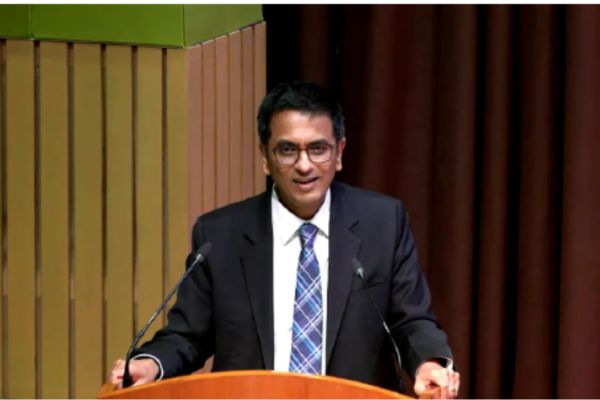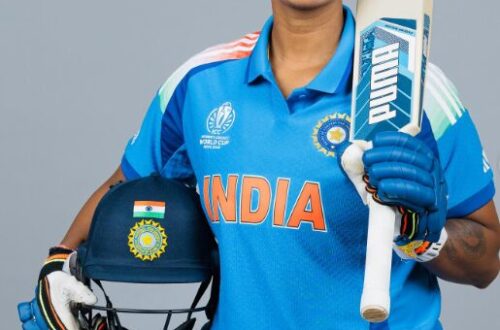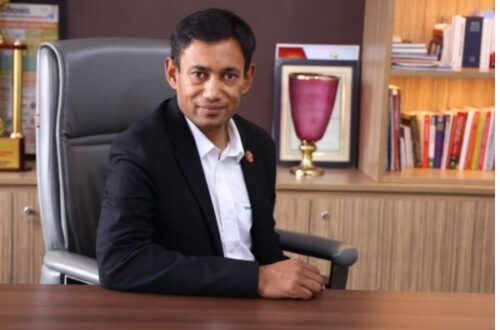
Justice D.Y. Chandrachud: Biography, Personal Life, and Career
Introduction
Justice Dhananjaya Yeshwant Chandrachud, popularly known as D.Y. Chandrachud, is one of India’s most prominent jurists. He served as the 50th Chief Justice of India and has been an advocate for constitutional rights, judicial reforms, and technological advancements in the judiciary. His landmark rulings have played a significant role in shaping modern Indian jurisprudence.
Personal Details
The following table provides an overview of Justice D.Y. Chandrachud’s personal life:
| Attribute | Details |
|---|---|
| Full Name | Dhananjaya Yeshwant Chandrachud |
| Date of Birth | November 11, 1959 |
| Age | 65 (as of 2025) |
| Birthplace | Mumbai, Maharashtra, India |
| Nationality | Indian |
| Father | Y.V. Chandrachud (16th Chief Justice of India) |
| Mother | Prabha Chandrachud |
| Marital Status | Married |
| Spouse | Kalpana Das (First Wife, deceased); Currently married to Rashmi Chandrachud |
| Children | Abhinav Chandrachud (Lawyer), Chintan Chandrachud (Lawyer & Author) |
| Adopted Children | Daughters – Priyanka and Mahi |
| Education | St. Columba’s School, Delhi; St. Stephen’s College, Delhi (BA Economics); University of Delhi (LL.B.); Harvard Law School (LL.M., Doctorate in Juridical Sciences) |
| Additional Training | Specialized training in constitutional law and human rights at international institutions |
| Academic Achievements | Dana Scholar at Harvard Law School; Franklin Family Scholar at Stanford Law School |
Professional Career
Justice D.Y. Chandrachud has had a distinguished legal career. Below is a table summarizing his professional milestones:
| Position | Institution/Role | Years Active |
|---|---|---|
| Advocate | Practiced law in Bombay High Court | 1983 – 1998 |
| Additional Solicitor General of India | Government of India | 1998 – 2000 |
| Judge | Bombay High Court | 2000 – 2013 |
| Chief Justice | Allahabad High Court | 2013 – 2016 |
| Judge | Supreme Court of India | 2016 – 2022 |
| Chief Justice of India | Supreme Court of India | November 2022 – Present |
Notable Judgments
Justice Chandrachud has been instrumental in several landmark judgments. Here are some of the most significant:
| Case Name | Year | Outcome & Significance |
|---|---|---|
| Right to Privacy (Puttaswamy Case) | 2017 | Recognized privacy as a fundamental right under Article 21. |
| Section 377 Decriminalization | 2018 | Struck down Section 377, decriminalizing homosexuality in India. |
| Sabarimala Temple Entry Case | 2018 | Ruled in favor of allowing women of all ages entry into the Sabarimala temple. |
| Ayodhya Ram Janmabhoomi Case | 2019 | Unanimous verdict in favor of constructing the Ram Temple. |
| Abortion Rights for Unmarried Women | 2022 | Expanded legal abortion rights to unmarried women. |
| Electoral Bonds Case | 2024 | Struck down the Electoral Bonds Scheme as unconstitutional. |
Contributions to Judicial Reforms
Justice D.Y. Chandrachud has been an advocate for modernizing the Indian judiciary. His key contributions include:
- Digitalization of Supreme Court records.
- Advocating for live-streaming of court proceedings.
- Encouraging gender inclusivity in judicial appointments.
- Strengthening the judiciary’s role in protecting civil liberties.
- Promoting legal education through judicial lectures and public seminars.
- Emphasizing alternative dispute resolution mechanisms to reduce the backlog of cases.
Frequently Asked Questions (FAQs)
1. Who is Justice D.Y. Chandrachud?
Justice D.Y. Chandrachud is the 50th Chief Justice of India, known for his progressive rulings on constitutional and human rights issues.
2. What is his educational background?
He studied at St. Columba’s School, Delhi; completed his BA in Economics at St. Stephen’s College, Delhi; obtained an LL.B. from the University of Delhi; and earned an LL.M. and a Doctorate in Juridical Sciences from Harvard Law School.
3. Who are his parents?
He is the son of Y.V. Chandrachud, the 16th Chief Justice of India, and Prabha Chandrachud.
4. Has he adopted any children?
Yes, he has adopted two differently abled daughters, Priyanka and Mahi, who have a rare genetic disorder called nemaline myopathy.
5. What are some of his landmark judgments?
Some of his most significant rulings include recognizing the Right to Privacy as a fundamental right (2017), decriminalizing homosexuality (2018), allowing women entry into the Sabarimala temple (2018), and striking down the Electoral Bonds Scheme (2024).
6. What initiatives has he undertaken as Chief Justice?
He has been an advocate for judicial transparency, live-streaming of court proceedings, and the digitalization of Supreme Court records.
7. What is his stance on civil liberties?
Justice Chandrachud is known for his strong support of civil liberties, gender rights, and free speech, often advocating for progressive interpretations of constitutional provisions.
Conclusion
Justice D.Y. Chandrachud’s legacy is marked by his progressive approach to constitutional law and human rights. His tenure as Chief Justice of India has been influential in reinforcing democratic values, protecting civil liberties, and modernizing the Indian judiciary. His contribution to landmark rulings ensures his place as one of India’s most respected legal minds.




